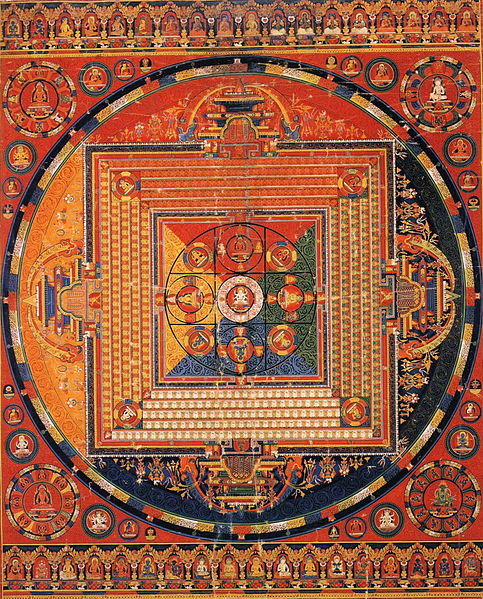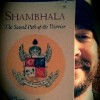Celtic Buddhism? Is this a joke?
This is some white man’s idiocy: robbing another ancient religion and turning it into an Anglo-controlled, patriarchal, gentrified, white Buddha B.S.
I may have thought the same thing too at one time.
The truth is, Celtic Buddhism is no more a bastardized form of Buddhism than that of Chan, Zen, Tibetan or any other cultural understanding of what the Buddha taught. In fact, Celtic Buddhism is Tibetan Buddhism ala the Celtic history and mythology. Instead of the dakini there are the wee folk or the Fae’, instead of angry and compassionate forms of local deity in Tibet, we see Cernunnus and Dagda and others.
What attracted me to this approach was its open controversy.
Its lack of controlled, dogmatic and vehemently protected rights and rituals that if broken or denied would get you booted face first into the dirt of loneliness. Here sits an almost identical approach to our practice but with cultural icons and history that is relatable for the ritually absent and hurting western world. A practice that could be embraced without taking over and capitalizing on another’s culture yet adding to one we, as American westerners, desperately need.
Our obsession with capitalist take overs has beheaded everything from nature to tribalism and put it all on a t-shirt with a 200 percent mark up.
Here is a chance to fully practice the Buddha’s teachings, embrace our cultural heritage and communicate with other cultures in a full and meaningful way without patronizing them over their very own heritage as we march around acting as if it were our own.
I can’t tell you if John Perks is a holy man or holy nut. I can’t truly tell you if Chögyam Trungpa Rinpoche really wanted this to happen, even though he certainly seemed to hint that he approved of and encouraged the idea.
I can however, attest to Perks’ tenacity and deep and intense understanding of shamanic Buddhism as taught by Chögyam Trungpa Rinpoche. I can attest to his deep passions and insane sense of warmth and humor. Leaving all that aside, I can also attest to my personal practice and the passion I felt for Buddhism but that something missing culturally as a western practitioner who didn’t grow up understanding the significance of Mahakala and Tara but did fully understand the power and attraction of Ceridwen and Lugh.
We so often want to find fault with everything new and odd and not bound up so tight that it makes a frog’s butt look like a worn out hair scrunchy and I think that may just be the point.
We have concreted and so overly ritualized a concept that it is no longer a living and breathing idea.
We packaged and printed and sold and ritualized our concepts into perfect American mass marketing but still find ourselves wandering around in the sea of perverse self hatred.
As Americans, we love pointing fingers and we really love a spectacle, but we so often fail to see the one we create with our exclusivist attitudes. I can’t tell you what’s right or wrong or if it would make the Buddha roll over in his grave. What I do know however, is that a man’s heart can be judged by his actions. Our daily practice shouldn’t have a side dish of judgment. It should be a simple sense of open embrace.
When I spend my time walking in the woods, I don’t relate to the notion of unknown woodland spirits. Sometimes, I don’t relate to anything like that at all. Yet when I find myself lost, smiling and hearing the land, I hear my ancestors talking and listening through me.
So, maybe the horned god isn’t Mahakala, but Mahakala isn’t Brahma or Quan Yin. My mindfulness is the same no matter where I am, as is the eightfold path, as is the four noble truths and as is all of our passions for the path shown to us by one man we all relate to: Buddha.
Love elephant and want to go steady?
Sign up for our (curated) daily and weekly newsletters!
Editor: Catherine Monkman
Photo: Wikimedia Commons


 Share on bsky
Share on bsky





Read 0 comments and reply